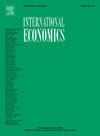气候变化的宏观经济影响:来自加拿大各省的证据
引用次数: 0
摘要
我们研究了1961年至2017年间气候变化对加拿大10个省份的长期宏观经济影响。根据Kahn等人(2021a)的研究,我们的计量经济学策略将温度和降水(天气)与其数十年历史滚动平均值(气候)的偏差与总体和部门层面的各种特定省份的经济表现指标联系起来。我们表明,气候变化(以一系列天气冲击为代表)对加拿大各省和经济部门的实际产出产生了长期的不利影响。适应减少了收入损失,但不能完全抵消这些损失。此外,与大多数跨国结果相反,我们的国内估计表明降水和温度异常对增长的影响不对称。具体而言,持续高于正常水平的降水与较低的长期GDP增长有关,而低于正常水平的降水的影响在统计上并不显著。至于温度,虽然长时间的寒冷期(温度持续低于历史标准)对经济增长有害(尽管未来不太可能),但加拿大并没有像文献中经常提到的那样从气候变暖中受益。本文章由计算机程序翻译,如有差异,请以英文原文为准。
Macroeconomic effects of climate change: Evidence from Canadian provinces
We study the long-term macroeconomic effects of climate change across ten Canadian provinces between 1961 and 2017. Following Kahn et al. (2021a), our econometric strategy links deviations of temperature and precipitation (weather) from their multi-decade historical rolling averages (climate) to various province-specific economic performance indicators at the aggregate and sectoral levels. We show that climate change (proxied by a series of weather shocks) has a long-lasting adverse impact on real output in various Canadian provinces and economic sectors. Adaptation reduces the income losses but cannot offset them entirely. Moreover, in contrast to most cross-country results, our within-country estimates suggest asymmetrical growth effects from precipitation and temperature anomalies. Specifically, persistently higher-than-normal precipitation is associated with lower long-term GDP growth, whereas the effect of below-than-normal precipitation is not statistically significant. As regards temperature, while extended periods of cold spells (temperature persistently below historical norms) is detrimental to growth (though less likely in the future), Canada is not benefiting from a warmer climate as often argued in the literature.
求助全文
通过发布文献求助,成功后即可免费获取论文全文。
去求助
来源期刊

International Economics
Economics, Econometrics and Finance-Economics, Econometrics and Finance (all)
CiteScore
6.30
自引率
0.00%
发文量
74
审稿时长
71 days
 求助内容:
求助内容: 应助结果提醒方式:
应助结果提醒方式:


